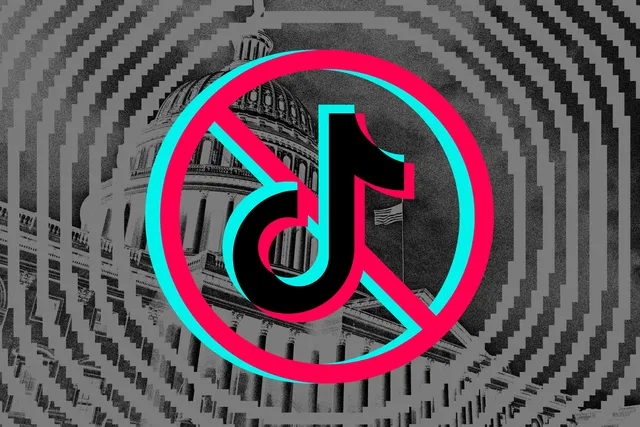TikTok had its day in court — and it didn’t go particularly well.
TikTok, the social media platform beloved by over 170 million Americans, is now fighting for its very existence in a U.S. courtroom. On Monday, the company’s future came down to a critical moment as its attorneys squared off against a panel of three judges in the DC Circuit Court of Appeals. However, the tone in the courtroom suggested a tough uphill battle for TikTok, as the judges expressed notable skepticism about its arguments.
At the heart of this legal showdown is a bill, commonly referred to as the “TikTok ban,” which demands the divestment of TikTok from its Chinese parent company, ByteDance, by January 19. TikTok’s legal team, along with a group of creators, argues that the government’s move is not just about divestment—it’s effectively a ban. They assert that it would have a chilling effect on free speech, both for TikTok as a platform and for the millions of creators who rely on it to share their content. They claim the law is an unjust overreach that could limit the flow of information Americans can receive.
On the other side, the U.S. Department of Justice (DOJ) stands firm, defending the bill as a necessary and measured response to a pressing national security threat. The government argues that TikTok’s ties to ByteDance leave the platform vulnerable to potential exploitation by the Chinese government, posing a risk that must be addressed.
The three judges presiding over the case represent a cross-section of the political spectrum: Chief Judge Sri Srinivasan, an Obama appointee; Judge Neomi Rao, appointed by Trump; and Judge Douglas Ginsburg, a Reagan appointee. But regardless of their backgrounds, the judges appeared more focused on questioning TikTok’s case than the government’s.
Throughout the hearing, Judge Rao and Judge Ginsburg showed visible signs of doubt, with both occasionally leaning forward, squinting, and resting their heads on their hands during TikTok’s presentation. Rao, in particular, probed deeply into TikTok’s argument, pointing out that the bill is an act of Congress, not the action of a federal agency like the Environmental Protection Agency (EPA). “Congress is not the EPA,” Rao remarked, suggesting that TikTok’s argument seemed to hinge on the assumption that Congress should be held to the same standards as regulatory agencies.
The panel also questioned the feasibility of less drastic alternatives, such as requiring TikTok to provide detailed disclosures about its data practices and content moderation policies. However, Rao and Srinivasan raised concerns about trusting TikTok to self-police, given that the government considers the company a potential pawn of a foreign adversary.
Judge Ginsburg, who remained relatively quiet during much of the hearing, challenged TikTok’s assertion that the law unfairly singles out the company. He argued that the bill doesn’t target TikTok specifically but rather any company under foreign adversary control that could pose a security threat. TikTok just happens to be the most immediate concern after years of stalled negotiations with the government.
Adding another layer to the case, Jeffrey Fisher, representing a group of TikTok creators, warned that upholding the law could set a dangerous precedent, potentially leading to limitations on American creators who produce content for foreign-owned companies. Fisher pointed to companies like Spotify, the BBC, and Politico as examples of media organizations with foreign ties that could face similar scrutiny in the future. He further argued that concerns over TikTok’s content curation, such as fears about its influence on narratives around the Gaza conflict, “taint the entire act.”
Yet, the judges remained unconvinced that TikTok creators have a clear First Amendment stake in the ownership of the platform. In fact, the judges referenced Justice Amy Coney Barrett’s musings in a recent NetChoice case, where she noted that foreign ownership could influence how courts view First Amendment claims. The current law is aimed specifically at entities controlled by foreign adversaries, a point that complicates the free speech argument for TikTok’s legal team.
The DOJ, represented by attorney Daniel Tenny, faced its own tough questioning. Tenny acknowledged that TikTok’s U.S. entity, TikTok, Inc., does have First Amendment rights, but argued those rights are “incidental” in this context, as the law does not directly target them.
One controversial element that didn’t make it into the oral arguments was the government’s classified documents, which allegedly detail the security risks posed by TikTok. These documents have been shared with the court but remain hidden from TikTok’s legal team, as the government argues that exposing them could further compromise national security. Instead, the focus of the hearing revolved around how the court should balance First Amendment rights with the potential threat of foreign control.
Kiera Spann, a TikTok creator and one of the petitioners in the lawsuit, voiced her frustration after the arguments. In a press conference, Spann called TikTok “the least-censored and most authentic source of information” available on social media and expressed concern that the rich, diverse conversations she enjoys on TikTok would be impossible to replicate on other platforms. Similarly, Jacob Huebert, president of the Liberty Justice Center, representing BASED Politics, emphasized that the judges asked probing questions of both sides, cautioning against reading too much into the tough questioning TikTok received.
The courtroom was packed with around 150 people eager to witness the proceedings, a reflection of just how high the stakes are in this case. As the deadline for TikTok’s divestment looms closer, the decision of this three-judge panel could be crucial in determining the future of one of the world’s most popular social media platforms. Whatever the outcome, it’s almost certain that the case will end up before the Supreme Court. But with the January 19 deadline fast approaching, time is running out for TikTok to make its case and avoid a potential U.S. ban.










